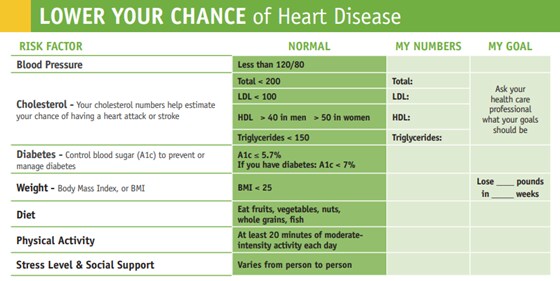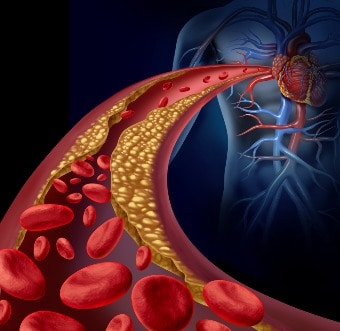What is Preventive Cardiology?
Cardiologists who specialize in preventive cardiology work closely with their patients and education them on the importance of lifestyle management and modification to achieve optimal cardiovascular health. The goal is to reduce risk factors and prevent disease from getting worse.
There are some risk factors for disease that we can modify and change and there are some that we can’t control.
MODIFIABLE RISK FACTORS
|
NON-MODIFIABLE RISK FACTORS
|
- High Blood Pressure
- High Cholesterol
- Diabetes Mellitus
- Obesity and sedentary lifestyle
- Smoking
- High Cholesterol
- Heavy alcohol consumption
|
- Genetics and family history
- Age
- Gender
|
How will my cardiologist help me manage my risk factors?
High Blood Pressure

High blood pressure is the force of your blood pumping against the walls of the arteries that feed oxygenated blood to all organs in your body. When pressure s to high, your heart has to work very hard. Over time, elevated blood pressure can weaken your heart, kidney, and blood vessels throughout your body.
Cardiologists are skilled at managing high blood pressure. Ensuring patients patient’s achieve a healthy blood pressure is important for decreasing repeat and future events like stroke and heart attack. Blood pressure can be better controlled with medications, diet, and exercise. Cardiologists will work with each individual patient to tailor a medication plan that best fits their needs. This is achieved with careful follow up and requires collaboration with patient and provider. When needed cardiologists can give referrals for specialized exercise program and dieticians to help patient’s meet target weight goals.

How do I check my blood pressure at home?
Learn how to take your blood pressure at home.
TALK to your cardiologist today about setting a blood pressure goal and tailoring a plan to optimize your heart heath.
High Cholesterol

Cholesterol is a fatty substance that moves throughout your blood. The body gets cholesterol form the food we eat. The body also produces its own cholesterol. Cholesterol is important for body functions, however too much cholesterol can be dangerous.
Overtime cholesterol can build up and form plaques in the arteries. These plaques can lead to blockages in major arteries. For example, the heart and blood vessels. The blockages can lead to heart disease.
Cardiologists are skilled at monitoring and treating high cholesterol, which is often preventable and treatable. You doctor can help help tailor a plan for you that includes diet, medication and exercise to reduce your cholesterol.
TALK to your cardiologist today about setting a cholesterol goal and tailoring a plan to optimize your heart heath.
 Most heart disease can be prevented by maintaining a healthy weight, eating well, moving more, managing stress, and avoiding tobacco. Adopting a healthy lifestyle can seem overwhelming and it might seem challenging to know where to stray. Your cardiologist is here to help with your journey to an improved lifestyle.
Most heart disease can be prevented by maintaining a healthy weight, eating well, moving more, managing stress, and avoiding tobacco. Adopting a healthy lifestyle can seem overwhelming and it might seem challenging to know where to stray. Your cardiologist is here to help with your journey to an improved lifestyle.